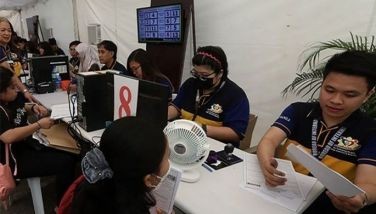Rent in the time of COVID-19

Had we known that clients would be accepting, and our people could cooperate to stay productive in a work-from-home environment, we would be leasing half of the office space that we have today.
Lessors immediately showed their good side in this crisis and waived rentals for retail stalls. But they had, in fact, only started. With their lessees’ businesses hugely affected, the lessors’ solidarity with them shall be stress-tested.
No one expects people to be back in their offices like it used to be once the home quarantine is lifted. Without the certainty of a cure, that’s plain reckless, and expect the government to still mandate work from home, generally. (I am, however, one of those who have faith that this lethal virus will cease before a man-made cure becomes a certainty.)
The Department of Trade and Industry’s suggestions of discounted rent or deferment of payment, although understandable, are not comforting enough for lessees. Lease contracts would have required advance payment of lease for several months, and would have a standard clause that force majeure does not excuse non-payment of rent. So are lessees simply legally impoverished and just dependent on the generosity of the lessors?
Not quite. Why or how, is what my article will try to help on, this Sunday. So read on.
What I have found in our civil law on leases, and jurisprudence on the matter, is that lessees are not easily exonerated from payment of lease. In fact, even if the lessee is deprived of their physical enjoyment of the leased premises, that is no excuse for not paying rent. This is because the lessor does not warrant that nothing will stop the lessee from physically enjoying the lease.
To illustrate: if there is a storm, earthquake or any natural disaster that prevents the lessee’s people from going to the office, the lessee is still obligated to pay the lease. That is why force majeure will not normally excuse the lessee from paying the lease. If there is a legitimate bomb threat that made the lessee unable to use the office until it’s totally cleared of danger, the lease should still be paid in full and on time. This act of man posing harm that prevents the use of the property is no excuse for paying the lease.
What the lessor however promises, based on the law, and as explained by the Supreme Court, is the legal possession of the leased office space. The lessor promises that the legal possession of the lease premises will not be disturbed during the existence of the lease. That legal disturbance happened today, via the Bayanihan Act of 2020, a legislation of Congress, an act of man. It states that violating Presidential instructions is criminal, or subject to huge penalties. Part of those instructions is to work from home and to close offices except for named essential industries.
In the case at hand, there is not only a disturbance coming from force majeure, but also from an act of man – the legislation that makes it illegal for the meantime to use the leased premises. Granted that without such law, we will be unsafe. What should be part of this discussion, however, is that there are different approaches to COVID-19, and the likes of the Hong Kong, Singapore and Japanese governments allow people to go to their offices because they have other measures to prevent the spread.
What happened in the Philippines is a legitimate exercise of the police power of the state that prevailed over the rule against non-impairment of contracts (i.e. Government can overcome the lessee’s rights under the lease contract to enjoy the leased premises). We can say it is now legally impossible (albeit temporarily) to take possession of the leased premises as intended in the contract. Without such exercise of police power, lessees can use the office for operations despite the risks. While it is not advisable to do so as people may get sick, they can legally use the premises if not for the legal impediment.
So am I saying that lessees should pay zero rent? Of course not. And the case is not cut and dry. There are lessees allowed to partially operate in their offices under the law, and those who are not so allowed still maintain their equipment, furniture and records in the office. There are legal arguments available to the lessor, there is always that. But the point of this public service article is that lessees are not legally helpless.
Having said that, I would encourage you to cast aside the rest of the legal remedies. This is not the time for positions, but for helpful conversations. Besides, lessors have already shown their good side and are receptive to being agile. At the very least, the cost and penance to the parties to this totally unforseen pandemic should be equitably shared, and long-term relationships should be preserved.
Besides, now we know that working in the office is the real luxury, and work from home is a far second.
* * *
Alexander B. Cabrera is the chairman and senior partner of Isla Lipana & Co./PwC Philippines. He is the chairman of Integrity Initiative Inc. (II Inc.), a non-profit organization that promotes common ethical and acceptable integrity standards. Email your comments and questions to [email protected]. This content is for general information purposes only, and should not be used as a substitute for consultation with professional advisors.
- Latest
- Trending






























